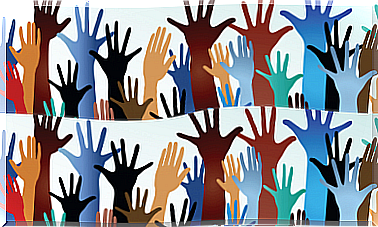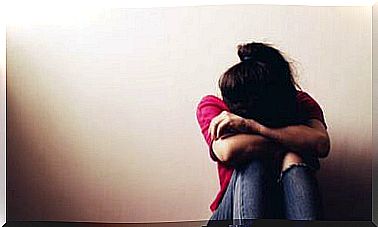The Invisible Threads That Maintain Our Behaviors (Secondary Gains)

The secondary gains are all consequences that accompany those situations where we feel bad or simulate a negative feeling. And that, in addition, paradoxically they have something positive for the person who obtains them.
This “something positive” can turn into something very dangerous, since it is a reinforcer or a reward that will stimulate us to try to put ourselves in the unpleasant situation again.
For example, an illness can involve a reaction in others towards the sick person, of care, of attention, of showing affection, and of being more condescending with that person. In addition, there may be the secondary gain of not having to go to work, or of better working conditions adapted to the disease, financial aid, etc.
There are so many good things that someone might think, why am I going to use the means to heal myself if in exchange for a more or less manageable pain I get a bag of positive things?
How to discover secondary earnings?
The secondary gains can be very subtle and covert, so that the person receiving them is not even aware of what you are you are really contributing.
The person who suffers discomfort from a disease, illness or emotions that overwhelm him, in reality, is an unhappy person and often complains about his situation.
However, he recognizes that his situation could be worse if he is not in the current situation, since, despite the suffering, his situation grants him some privileges, such as being close to the people who matter to him, staying without work, getting changes in close people as they will do everything possible to improve the condition and pain of the person who is ill, etc …
How do secondary gains affect relationships?
The secondary gains are a benefit within discomfort for the person who receives them , but are a big wear for those with whom they live, as they suffer as their own discomfort or overflowing emotions of the sick person.
Family members, partners, close friends or loved ones are the ones who suffer the worst consequences, since they may come to believe that it depends on their behavior, that the sick person recovers or improves within their bad state.
This burden ends up becoming a dependency for both people, since the person who undergoes its process will depend on those who care for it and they will be continually pending on the sick person.
Emotional blackmail
Therefore, within that dependence that is generated from the sick person to the people who facilitate secondary earnings, it is very easy to get carried away by emotional blackmail. That is to say, the sick person may end up blaming, demanding or burdening the person who attends with the course of their illness or the state of their health, in an attempt to achieve what they expect.
We can see an example of this in those people who are overwhelmed by an emotional state of anger, rage or fury, etc … They often blame other people for their reaction and discomfort. In addition, they wait for the other person to change, apologize or acknowledge the mistake, maintaining anger, anger, etc … for a long period of time. They hold their posture as a measure of pressure: expecting to feel better only when the other shows some kind of change in the direction they intend.
Thus, in this way, the guilty person will tend to give in, to avoid the conflict or discomfort that the emotionally affected person generates, to be like this for a long time.
And by this mechanism, with the reactions of anger, rage, fury, etc … secondary gains are obtained , such as the change of the other person, towards the direction that the angry person marks him.
Resistance to change
People who obtain some type of secondary gains are resistant to therapeutic change, since, despite the discomfort, the reward they obtain for this state is greater.
However, as it is an unconscious process, both gains and resistance, when the person becomes aware of it, they usually work more deeply on their change in attitude, and therefore, on their improvement in health, physical and psychological.









